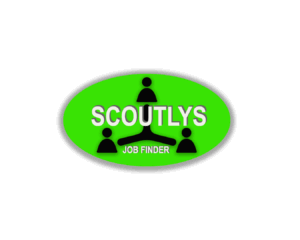FAQ
Have Questions?
When clients (employers or hiring managers) are seeking candidates for remote AI task jobs, they typically ask questions to assess skills, experience, and suitability for remote work.
here are the common questions clients ask during the hiring process, categorized by key areas of focus:
.
- What experience do you have with specific AI frameworks or tools? (e.g., TensorFlow, PyTorch, Hugging Face, or cloud platforms like AWS, Azure, or GCP)
- Can you share examples of AI projects you’ve worked on? (Clients often request portfolios or case studies, especially for machine learning engineers or data scientists.)
- How do you approach building or optimizing AI models? (To gauge problem-solving skills and familiarity with model training, fine-tuning, or deployment.)
- Are you proficient in programming languages like Python, R, or Java? (Common for roles like AI software developers or data engineers.)
- Have you worked with specific AI domains, such as NLP, computer vision, or reinforcement learning? (To ensure alignment with project needs.)
- How do you handle large datasets or ensure data quality for AI training? (Critical for data scientists, data engineers, or annotation roles.)
- How do you manage your time and stay productive in a remote environment? (To assess self-discipline and organizational skills.)
- What tools do you use for remote collaboration and communication? (e.g., Slack, Zoom, Trello, or Git for version control.)
- How do you handle time zone differences when working with distributed teams? (Especially relevant for global companies.)
- What’s your home office setup like, including your internet reliability? (To ensure candidates have a conducive work environment.)
- How do you stay motivated and avoid distractions while working remotely? (To evaluate work ethic and focus.)
- Have you worked on [specific AI task, e.g., data annotation, prompt engineering, or model deployment] before? (To confirm relevant experience.)
- How would you approach [specific project challenge, e.g., reducing model bias, improving chatbot responses, or scaling a data pipeline]? (To test problem-solving and domain knowledge.)
- Can you explain a time when you improved an AI model’s performance? (For roles like machine learning engineers or AI trainers.)
- Are you familiar with our industry’s AI applications? (e.g., healthcare, finance, or e-commerce, to ensure domain relevance.)
- How do you ensure the quality of AI outputs, such as in content moderation or data labeling? (For quality-focused roles like evaluators or moderators.)
- How do you identify and mitigate bias in AI models? (Critical for AI ethics consultants or bias auditors.)
- Are you familiar with data privacy regulations like GDPR or CCPA? (Especially for roles handling sensitive data, like medical or financial AI tasks.)
- How do you ensure ethical AI practices in your work? (To gauge awareness of responsible AI development.)
- Can you describe a challenging AI project you worked on and how you overcame obstacles? (To assess problem-solving and resilience.)
- How do you stay updated on AI advancements and tools? (Clients value candidates who keep up with rapidly evolving AI trends.)
- Have you worked with cross-functional teams, such as product managers or designers, on AI projects? (To evaluate collaboration skills.)
- Are you comfortable learning new AI tools or frameworks as needed? (To test adaptability, especially for fast-paced projects.)
- What’s your turnaround time for completing [specific task, e.g., data annotation or prompt testing]? (To assess speed and efficiency.)
- How do you handle high-volume, repetitive tasks like data labeling? (Common for microtasking roles.)
- What’s your experience with platforms like [specific platform, e.g., Scale AI, Appen, or Amazon Mechanical Turk]? (To confirm familiarity with gig workflows.)
- How do you ensure accuracy in short-term AI tasks? (Critical for quality assurance in gig-based work.)

